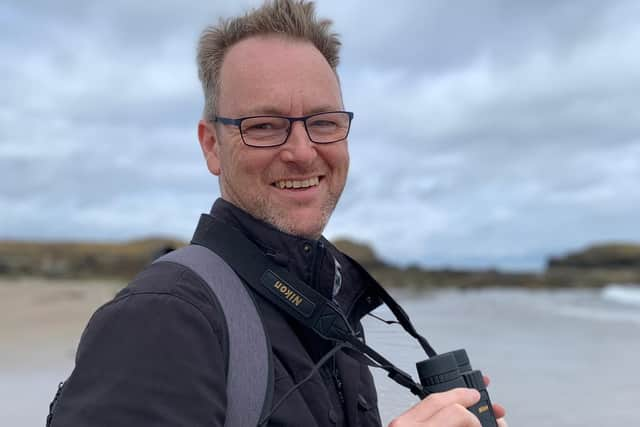Could the Attenborough effect revitalise efforts to save our native species? - Jason Rose
Well, the Blue Planet effect could be about to be repeated. There’s another landmark TV series on the horizon, this time focusing on the wildlife of the UK. “Wild Isles” will soon begin a five-week run on BBC One. Sir David Attenborough will guide millions of viewers through the landscapes and habitats that make the UK so special for important species of birds, fish, mammals, insects, and plants.
For the last three years, colleagues from the RSPB, along with WWF and The Open University, have been working with the BBC and Silverback Films, who created the “Planet” natural history series.
Advertisement
Hide AdAdvertisement
Hide AdWe’re likely to see a lot of Scotland’s favourite species and amazing landscapes, from the puffins and white-tailed eagles of the coast to the capercaillie of the Cairngorms.


The first episode will explain why the UK is globally important for nature, while the other four will celebrate our woodlands, grasslands, freshwater, and marine habitats.
This prime-time TV exposure will help drive home the message that while our wildlife is awesome, its future hangs in the balance. Scotland and the UK are among the most nature-depleted countries in the world, but we have a chance to turn things around. There are opportunities we can seize to revive our species and restore their habitats before it’s too late.
For example, the Scottish Government is about to consult on a revised draft of its biodiversity strategy. This will pave the way for a much-anticipated Natural Environment Bill, which will set targets for protecting species and restoring habitats. In recent weeks, thousands of Scots have sent virtual postcards to MSPs, as part of the #SaveScotSpecies campaign, featuring everything from great yellow bumblebees to rainforest lichens. It is a reminder to MSPs that amid competing political priorities, the public still expects action on nature.
There’s also an Agriculture Bill due in the Scottish Parliament this autumn. Will Scottish Ministers use this opportunity to incentivise the kind of farming that is good for nature and good for the climate? Many of the farming practices encouraged by UK and Scottish government policy in recent decades have contributed to the crisis we face today. Between 1995 and 2020, lapwings and curlews declined by 60%, kestrels by 65% and oystercatchers by 36%. By supporting farmers to plant hedges and trees, create wetlands and reduce pesticide use, we can transform the fortunes of these species.
Holyrood will also soon see a grouse moor and muirburn licensing bill, which will help tackle illegal killings of birds of prey, and keep our peatlands wet, as they should be.
And then there are our seabirds, ravaged over the last year due to bird flu, on top of existing pressures from invasive rodents eating their eggs, and industrial fishing taking their food. Offshore wind is the next hurdle they face. There’s a lot in the pipeline, and ministers know that its deployment must be carefully balanced. The pursuit of net zero must also deliver positive outcomes for nature.
Wild Isles will be a real conversation starter. It will move nature higher up political and business agendas, and not a moment too soon. If Blue Planet II led to a crackdown on plastic pollution, let’s hope Wild Isles puts a rocket under efforts to save our species.
Jason Rose, Policy Campaigns Manager, RSPB Scotland
Comments
Want to join the conversation? Please or to comment on this article.